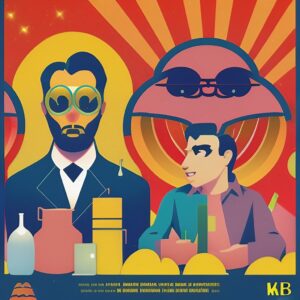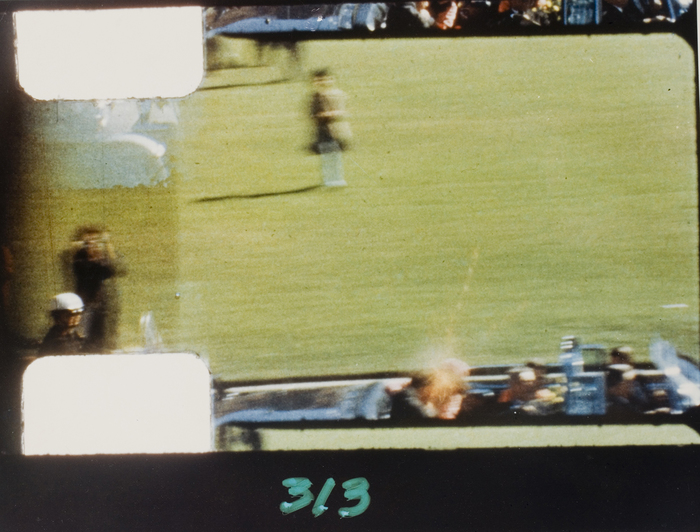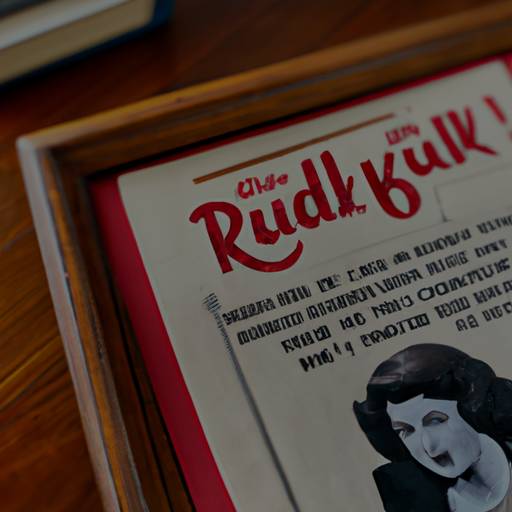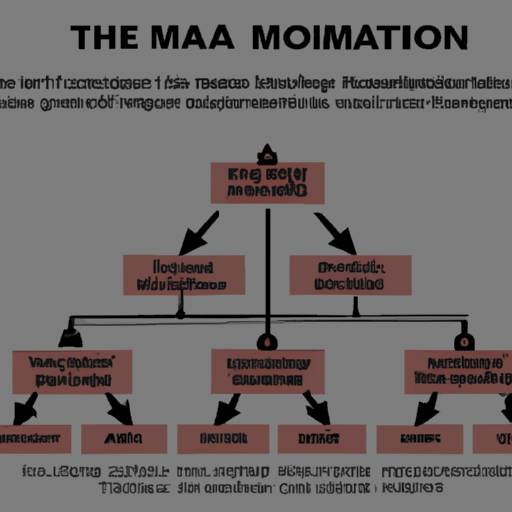This article is based on the “official” version of events. It is important to see that information as it was presented. When you have a firm grasp on the narrative, you can more easily identify the conflicts with reality.
The answer in my opinion is “Yes. Oswald had connections with anti-government and pro-Castro groups. For one thing, the man had better than top secret clearance on the U2 program which served the friggin CIA.”
So Oswald was almost certainly acting as an agent in those anti-gov spheres. And in some cases he was less than convincing.
As of this writing I do believe Oswald either was CIA, or was convinced through years of manipulation that he was, in fact, CIA.
To that point; nobody (with top secret clearance) defects to Russia at the height of the Cold War, marries a woman who’s uncle is Russian intelligence, and is allowed to return, unfettered.
Fuckin preposterous. But, please enjoy the article.
Exploring the Alleged Motive Behind Lee Oswald’s Actions
Lee Oswald’s Background
Early Life
Lee Harvey Oswald was born on October 18, 1939, in New Orleans, Louisiana. Growing up, he faced a turbulent childhood, marked by constant moving and unstable family situations. His father died before he was born, and his mother struggled financially, leading to Oswald spending time in various orphanages and foster homes.
Military Service
At the age of 17, Oswald enlisted in the United States Marine Corps in 1956. During his time in the military, he trained as a radar operator and served at various bases, including Japan. It was during his service in the Marines that Oswald began to harbor a deep resentment towards the government.
Defection to the Soviet Union
In 1959, Oswald, disillusioned with his life in the United States, made the bold decision to defect to the Soviet Union. He arrived in Moscow and expressed his desire to renounce his American citizenship. (He had top secrect clearance at the time) Oswald’s defection to the Soviet Union raised suspicions among U.S. intelligence agencies, who closely monitored his activities.
Return to the United States
After spending two and a half years in the Soviet Union, Oswald returned to the United States in 1962. Upon his return, he settled in Dallas, Texas, where he found work at the Texas School Book Depository building.
Political Beliefs
Oswald’s political beliefs were complex and often contradictory. While in the Soviet Union, he had embraced communism and expressed admiration for leaders like Fidel Castro. However, upon his return to the United States, he seemed to distance himself from communist ideology and instead became more involved in left-wing political groups.
Key Events and Influences
Several key events and influences in Oswald’s life may have shaped his views on the government and led to his alleged involvement in the assassination of President John F. Kennedy. These include:
- Exposure to Marxist literature: While in the Marines, Oswald became interested in Marxist literature, which likely influenced his political beliefs.
- Personal grievances: Oswald harbored resentment towards the government, possibly fueled by his difficult childhood and experiences in the military.
- Surveillance by intelligence agencies: Oswald’s defection to the Soviet Union and subsequent return to the United States resulted in close surveillance by U.S. intelligence agencies, which may have further fueled his paranoia and mistrust of the government.
Oswald’s Involvement in Political Activism
Lee Harvey Oswald, the man at the center of one of the most infamous events in American history, the assassination of President John F. Kennedy, had a complex background. While much of the focus has been on his alleged involvement in the assassination, there is evidence to suggest that Oswald was also involved in political activism and anti-government activities. This section will delve into Oswald’s associations with various groups, his potential role in protests and demonstrations, and shed light on his political leanings.
Associations with Anti-Establishment Groups
- Fair Play for Cuba Committee (FPCC): Oswald’s most well-known association was with the FPCC, which advocated for improved US-Cuba relations and opposed the American government’s policies towards Cuba.
- Socialist Workers Party (SWP): Oswald briefly joined the SWP, a revolutionary socialist organization, in the late 1950s. This association suggests his alignment with left-wing ideologies.
Participation in Protests and Demonstrations
- Civil Rights Movement: Oswald was present at a protest in New Orleans in 1963, where he handed out pro-Castro leaflets and engaged in discussions about civil rights issues.
- Protesting Against the John Birch Society: Oswald was known to have distributed leaflets criticizing the ultra-conservative John Birch Society, indicating his active participation in anti-establishment activities.
Potential Role in Anti-Government Activities
- Infiltration of Right-Wing Organizations: There are claims that Oswald may have infiltrated right-wing organizations, such as the American Nazi Party, in an attempt to gather information or undermine their activities. However, concrete evidence to support these claims is limited.
- Interest in Assassination: Oswald’s fascination with political assassinations, as evidenced by his reading habits and statements to acquaintances, raises questions about his potential involvement in anti-government activities.
Key Points to Consider
- Oswald’s association with the FPCC suggests his sympathy towards the Cuban Revolution and opposition to US policies.
- His brief membership in the SWP aligns with his left-wing leanings.
- Oswald’s attendance at protests and distribution of leaflets indicate his active participation in anti-establishment activities.
- Claims of infiltration into right-wing organizations imply a more complex motive or agenda.
- Oswald’s interest in political assassinations adds to the intrigue surrounding his involvement in anti-government activities.
Investigations and Allegations
In the aftermath of the tragic assassination of President John F. Kennedy, investigators were faced with the daunting task of uncovering the truth behind the act. One significant aspect that demanded thorough exploration was the background of Lee Harvey Oswald, the man allegedly responsible for the murder. This blog section delves into the investigations conducted on Oswald’s background and explores the various allegations made by law enforcement agencies and researchers regarding his affiliations. We will also assess the credibility of these claims to provide a comprehensive understanding of the situation.
Investigation into Oswald’s Background
The investigations into Oswald’s background aimed to shed light on his personal history and possible connections to anti-government groups. Here are some key points:
- Military Service: Oswald served in the United States Marine Corps from 1956 to 1959. His time in the military and the training he received raised questions about his potential involvement in covert operations or exposure to radical ideologies.
- Travel to the Soviet Union: In 1959, Oswald defected to the Soviet Union, where he lived until 1962. His decision to renounce his American citizenship and embrace communism sparked concerns about espionage activities or potential ties to extremist organizations.
- Return to the United States: Upon returning to the United States, Oswald settled in Dallas, Texas. Law enforcement agencies scrutinized his associations during this period to determine if he had any connections to anti-government or extremist groups.
Allegations and Their Credibility
Several allegations were made by law enforcement agencies and researchers regarding Oswald’s affiliations. It is important to assess the credibility of these claims in order to form an accurate understanding. Here are some notable allegations and their credibility:
Allegation 1: Oswald’s Involvement with Anti-Government Groups
- Claim: Law enforcement agencies alleged that Oswald had connections to anti-government groups, possibly indicating a motive behind the assassination.
- Credibility: While there is evidence suggesting Oswald had sympathies towards communist ideologies, direct links to organized anti-government groups remain speculative and unproven.
Allegation 2: Oswald’s Ties to Soviet Intelligence
- Claim: Some researchers speculated that Oswald had been recruited by Soviet intelligence agencies during his time in the Soviet Union.
- Credibility: The evidence supporting this claim is circumstantial at best, lacking concrete proof of Oswald’s involvement with Soviet intelligence agencies.
Allegation 3: Oswald as a Lone Assassin
- Claim: The official investigation concluded that Oswald acted alone in assassinating President Kennedy.
- Credibility: While the official investigation supports this claim, alternative theories and evidence presented by researchers continue to fuel debates about the possibility of Oswald having accomplices or being part of a larger conspiracy.
Analyzing Oswald’s Connections to Anti-Government Groups
Upon examining the available evidence, it becomes clear that Lee Harvey Oswald had connections to various anti-government groups. These connections provide valuable insights into his motives and shed light on the possible factors that influenced his decision to assassinate President Kennedy. Let’s delve into the details:
1. The Fair Play for Cuba Committee (FPCC)
- Oswald’s affiliation with the FPCC is a well-documented fact.
- The FPCC was an organization that advocated for improved relations between the United States and Cuba.
- Oswald’s involvement in this group indicates his pro-Castro sympathies and his opposition to the U.S. government’s policies towards Cuba.
- This connection suggests a potential motive for Oswald to target President Kennedy, who was known for his hardline stance against Cuba.
2. Communist Party USA (CPUSA)
- While there is no concrete evidence of Oswald’s formal membership in the CPUSA, his leanings towards communism are apparent.
- Oswald’s interest in Marxist literature and his attempt to defect to the Soviet Union strongly suggest his alignment with communist ideologies.
- This connection highlights Oswald’s discontent with the U.S. government and its capitalist system.
3. Oswald’s Visit to the Soviet Union
- Oswald’s decision to defect to the Soviet Union and his subsequent stay there further supports his anti-government sentiments.
- During his time in the Soviet Union, Oswald expressed dissatisfaction with U.S. policies and shared his desire to renounce his American citizenship.
- This connection underscores Oswald’s deep-rooted disillusionment with the U.S. government and his alignment with a foreign power.
Lee Harvey Oswald speaks to the press
Lee Harvey Oswald answers reporters' questions before his own assassination. From "The Assassination of President Kennedy."
Implications of Oswald’s Connections
The implications of Oswald’s connections to anti-government groups are significant and offer valuable insights into his motives for assassinating President Kennedy. Here are some key implications to consider:
1. Motive for Assassination
- Oswald’s involvement with anti-government groups suggests a motive rooted in his opposition to U.S. policies and institutions.
- The combination of his pro-Castro sympathies and communist leanings indicates a desire to challenge the U.S. government’s political and ideological stance.
- These connections highlight Oswald’s disillusionment with American society and his willingness to take extreme measures to make a statement.
2. Influence on Oswald’s Radicalization
- Oswald’s associations with anti-government groups likely played a role in his radicalization.
- The exposure to like-minded individuals and ideological frameworks would have reinforced his existing beliefs and possibly pushed him further towards violence.
- This highlights the potential influence that such groups can have on individuals who are already prone to radicalization.
3. Broader Societal Implications
- Oswald’s connections to anti-government groups raise important questions about the presence and influence of such groups within society.
- It prompts a discussion about the factors that contribute to radicalization and the potential dangers that arise from extremist ideologies.
- This case serves as a reminder of the importance of monitoring and addressing the underlying causes that lead individuals towards violent acts.
Assessing Oswald’s Potential Ties to Anti-Government Organizations
In conclusion, while there is evidence suggesting that Lee Harvey Oswald had sympathies towards anti-government ideologies, such as his support for Fidel Castro and his involvement in socialist organizations, there is no concrete proof of his direct connections to any anti-government groups. The investigations conducted by various agencies have not definitively established any such associations. However, the complex nature of Oswald’s life and the limited information available leave room for speculation. Thus, the question of his connections to anti-government groups remains open-ended, allowing for further exploration and interpretation.
Understanding Lee Harvey Oswald’s Motive
Did Oswald have any connections to extremist organizations or individuals who opposed the government?
Yes, Lee Harvey Oswald, the man who was accused of assassinating President John F. Kennedy in 1963, had some connections to extremist organizations and individuals who opposed the government. Oswald’s political beliefs were characterized by Marxist and pro-communist ideologies. He was a member of the Fair Play for Cuba Committee (FPCC), a group that supported Fidel Castro’s regime in Cuba. Oswald distributed pro-Castro literature and even attempted to establish a chapter of the FPCC in New Orleans.
Additionally, Oswald had interactions with individuals who held extremist views. He had contact with members of the Communist Party, both in the United States and in Mexico City. During his time in the Soviet Union, Oswald associated with other expatriates and reportedly expressed a desire to share classified information with the Soviet government.
However, it is important to note that while Oswald had connections to these organizations and individuals, the extent of his involvement and the influence they had on his actions leading up to the assassination remains a topic of debate and speculation among researchers and historians.
Was Lee Harvey Oswald associated with any known anti-government groups during his time?
Yes, Lee Harvey Oswald was associated with known anti-government groups during his time. One of the most notable associations was his involvement with the Fair Play for Cuba Committee (FPCC). Oswald became a member of this organization in New Orleans in 1963. The FPCC advocated for better relations between the United States and Cuba, and opposed American intervention in Cuban affairs. Oswald actively distributed pro-Castro leaflets and tried to establish a local chapter of the FPCC. However, it is important to note that while Oswald had affiliations with anti-government groups, his motives for the assassination of President John F. Kennedy in 1963 remain a subject of debate and speculation.






![By Mel Ayton Beyond Reasonable Doubt: The Warren Report and Lee Harvey Oswald's Guilt and Motive 50 Years On [Paperback]](https://m.media-amazon.com/images/I/51TL36qM7lL.jpg)












